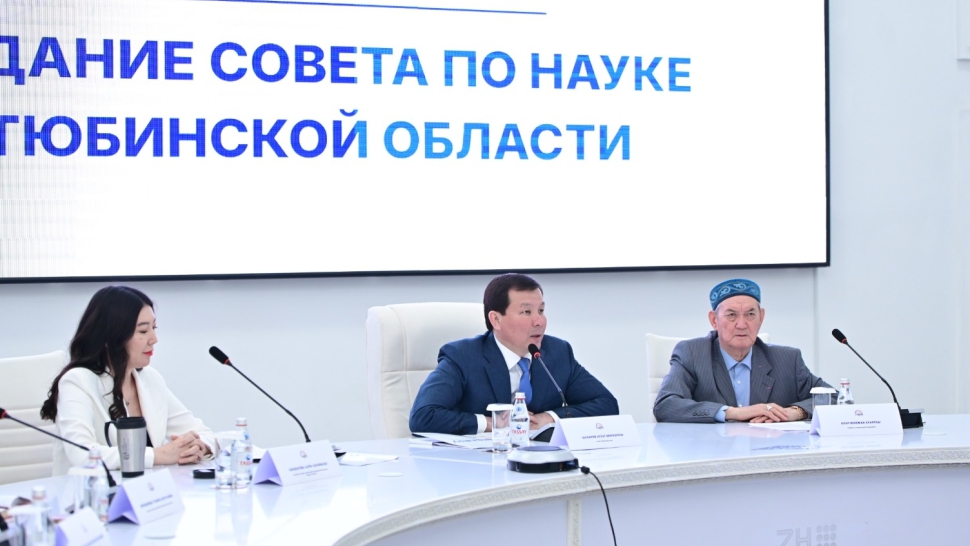
The first meeting of the science Council under the akimat of Aktobe region held at Zhubanov university
On April 8, 2025, the first meeting of the Academic Council of Zhubanov University took place. The event was organized in anticipation of the Day of Scientists, celebrated annually on April 12.
The meeting was initiated by the regional Akimat and the Aktobe Regional University named after K. Zhubanov.
Chairing the Council was the Akim of the region, Askhat Shakharov. Among the participants were heads of enterprises, entrepreneurs, leading scientists, university faculty members, and young researchers.
“This meeting of the Council is an important and historic step for our region,” said the regional head. He emphasized the vital role of science in sustainable regional development and recalled the instructions given by the Head of State Kassym-Jomart Tokayev during the 4th session of the National Congress on Science Development.
“The task set by the President is to become a leading nation. This cannot be achieved without the advancement of knowledge and science. Aktobe Region is not only an industrial and economic center of Western Kazakhstan, but also an intellectual hub with high potential. Our region boasts developed oil, mining, and metallurgical sectors, as well as strong specialized and multidisciplinary universities. The creation of the Science Council is a step toward strengthening ties between academic science and industry, and it should serve as a platform for developing concrete proposals,” noted Askhat Shakharov.
He also announced that the Council would foster dialogue between industry, universities, business, and civil society. The Akim expressed readiness to support pilot projects and the implementation of new ideas.
Special funds have been allocated from the regional budget to support science development. This decision, taken in response to the President’s directives, will contribute to the formation of a regional scientific ecosystem. Notably, the National Educational, Scientific and Industrial Center based at Zhubanov University is successfully implementing a project on industrial waste processing in collaboration with Kazchrome. The project has long-term development potential.
Rector of Aktobe Regional University, Laura Karabasova, also emphasized the university’s role in advancing science and the importance of applying scientific research and innovative projects to real production. She moderated the meeting and highlighted the university’s contributions to sustainable development in science and education in the region, with a focus on the integration of research and industry.
During the meeting, several leading scientists presented their research findings. Dr. PhD Yerbol Shabanov, head of the Academic and Research Center, spoke about new technologies for processing industrial waste.
“Our proposed methods will contribute to the sustainable development of the region. Waste processing will lead to the creation of new eco-friendly industries and reduce the environmental burden,” Shabanov noted.
He stated that the new technologies significantly reduce the environmental damage caused by industrial waste and are economically efficient.
Associate Professor of the Department of Biology and Candidate of Biological Sciences Arman Isimov shared the results of his research on epidemiological monitoring of livestock diseases.
“Timely response to animal diseases is a key step in ensuring food safety. Our research enables us to recommend specific preventive measures,” assured the university lecturer.
A significant moment of the event was the grand opening of new laboratories, including the Laboratory of Molecular and Cellular Biotechnology and the Center for Academic Excellence, which will greatly enhance the region's scientific potential and raise the level of research to international standards.
After the meeting, Akim Askhat Shakharov toured the newly opened laboratories and highly praised their capacity and contribution to the region's scientific development.
In conclusion, Askhat Shakharov stated that supporting science is a cornerstone of regional progress, and initiatives aimed at advancing scientific research and its integration into real industrial processes will continue.
